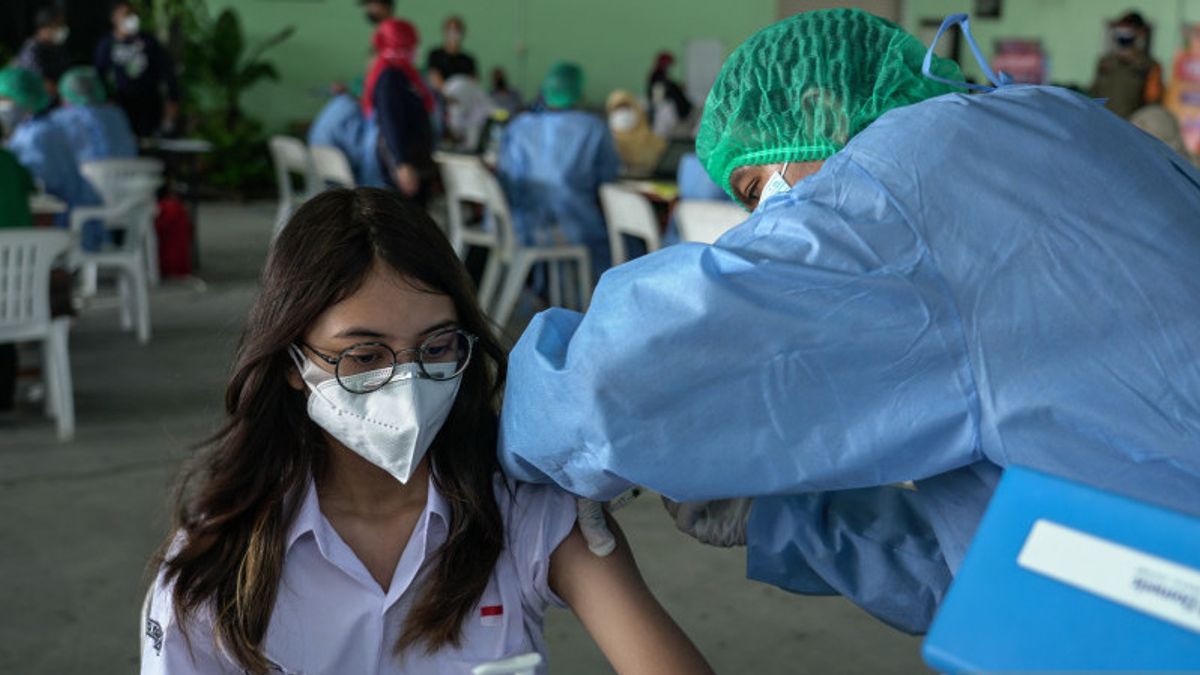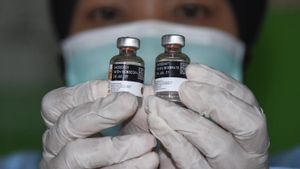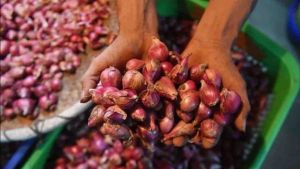JAKARTA - Pediatrician from the Faculty of Medicine, University of Indonesia, Ellen Wijaya, explained that the COVID-19 vaccine needs to be given a month's lag with other immunizations to provide optimal immunity.
This is also based on a number of recommendations from the Indonesian Pediatrician Association (IDAI) regarding children aged 12-17 years who will receive the COVID-19 vaccine.
"We have just been given the COVID-19 vaccine. The antigen enters the body. The body is responding by forming antibodies so that it can provide immunity against SARS-CoV-2. At that time, if the body is given other immunizations, later immunity will be sought for SARS-CoV -2 is not optimal," said doctor Ellen Wijaya, quoted by Antara, Wednesday, July 14.
The body needs to be allowed to form antibodies optimally after getting an injection of the COVID-19 vaccine with a minimum distance of one month from other immunizations.
Actually, according to Ellen who practices at Pondok Indah Hospital - Puri Indah, similar provisions also apply to other vaccines such as Hepatitis B and HPV.
IDAI also recommends that children who will be vaccinated against COVID-19 do not have immunodeficiency, blood cancer undergoing chemotherapy, receive high doses of steroids, recover from COVID-19 in less than 3 months, have Gullian Barre syndrome, transverse myelitis, and acute demyelinating encephalomyelitis.
Then, related to preparation before the child is vaccinated, parents should ensure that their condition is healthy, does not have a fever (above 37.5 degrees Celsius), gets enough rest, does not have certain comorbidities.
"Parents can communicate to their children, for example, the benefits of getting vaccinated, the location of the injection, conditions that can occur after being vaccinated, such as pain in the injection site and so on, getting enough sleep, the child is in good health," said Ellen.
SEE ALSO:
Tips if your child has a fever
After the vaccine is injected, the child can carry out activities as usual because even if side effects appear, they are usually mild, such as pain at the injection site. This condition can be overcome by compressing the painful area with warm water.
If your child has a fever, try measuring his temperature using a thermometer. If the temperature is above 38 degrees Celsius, the child is restless, fussy, then drugs such as Paracetamol can be given while being helped by compresses.
But if the child feels okay with the fever, parents don't need to worry and just observe.
"Fever is the mechanism of a healthy child's body. If the body is infected with a virus, the body's bad bacteria will fight back by forming a fever. Likewise, when the body is injected with attenuated antigens or vaccines, the body will form an antibody response and one of the manifestations is fever. Fever is not a condition which is dangerous," said Ellen.
He added that if there is any doubt regarding the side effects felt by the child after being vaccinated, parents can report it to the medical personnel who perform the vaccination.
The English, Chinese, Japanese, Arabic, and French versions are automatically generated by the AI. So there may still be inaccuracies in translating, please always see Indonesian as our main language. (system supported by DigitalSiber.id)

















